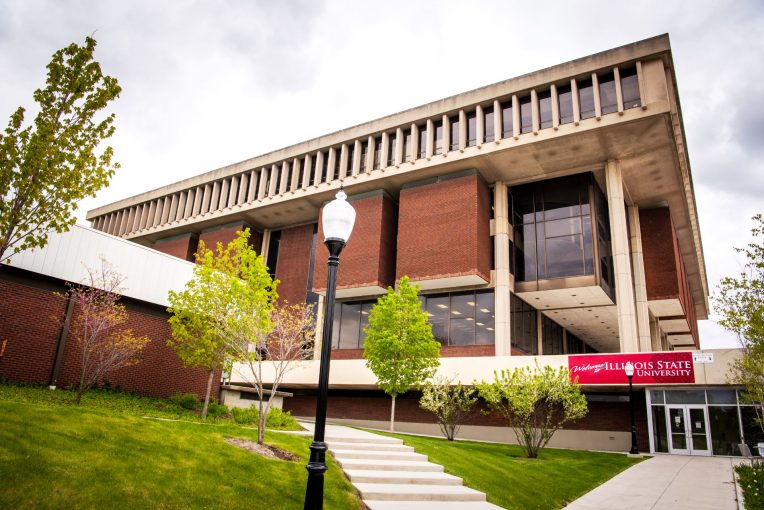As librarians our discussions of scholarly communication topics often focus on how they can benefit our users as a service, such as the Textbook Affordability Committee’s work with faculty members to make open-access textbooks available to students. However, there is also scholarship being done about scholarly communication itself, which we often use to guide our efforts and inspire new services and programs. This scholarship can take several forms and cover a wide variety of specific topics and applications, and we have included three examples below.
Karen S. Kesten and Sara N. Hoover published their scholarship in the article “Doctor of Nursing Practice Scholarship Dissemination through an Open Access Repository” in the Journal of Professional Nursing. Kesten and Hoover’s article discusses over five years of lessons learned using an institutional repository to provide access to over 100 Doctor of Nursing Practice (DNP) projects, which have been collectively downloaded over 72,000 times. Publications by our own Mennonite College of Nursing students and faculty members can be found on our own institutional repository, ISU ReD.
Giovanni Colavizza, Silvio Peroni, and Matteo Romanello also published the article “The Case for the Humanities Citation Index (HuCI): a Citation Index by the Humanities, for the Humanities” in the International Journal on Digital Libraries. This article argues that an open citation index for humanities fields built around the needs of humanities scholars would benefit all stakeholders. Ultimately, the paper offers a way forward for humanities scholars and institutions to begin building a Humanities Citations Index.
Digital humanities projects can also be a natural fit for scholarship in the scholarly communication field, such as the “On the Books: Jim Crow and Algorithms of Resistance” project led by Sarah Carrier. Carrier worked with over 30 people—including Amanda Henley, Kimber Thomas, and William Sturkey—to identify over 2,000 Jim Crow laws in North Carolina. The team used text-mining and machine-learning programs to identify the laws, and have received additional funding from the Mellon Foundation to expand the project to the laws of two additional states.
This is just a minuscule sample of the scholarship around scholarly communication and open access. If you have questions about making your past or current projects open access, would like to include your materials on our institutional repository ISU ReD, or have questions about any scholarly communications or related topics, contact Milner Library’s Scholarly Communication Team.
- A look at some recent Open Access datasets
- International Journal for Business Education migrates to ISU ReD
- New online resource roundup
- ISU authors flip book chapters to Open Access
- Highlighting linked data projects
- New Open Research Toolkit available online
- Creating open access datasets
- Happy Public Domain Day 2022!
- Open and affordable resources around the library
- Milner Library recognizes Open Access Week, October 25–31
- Welcome back from Milner’s Scholarly Communication Team
- Milner deal supports opportunities for open access publishing
- Google Dataset Search: Using open access tools during the research process
- Summer Open Access activities
- Open Access documents from the Government Publishing Office
- Streaming in ISU ReD: Beyond an article
- Search scholarly works preserved by the Internet Archive
- Discovering affordable materials for your class and research
- ISU ReD marks its 10,000th item
- Recent developments in Open Access
- Integrating Wikipedia with Scholarly Communication
- Happy Domain Day 2021!
- Big Deals and the MIT Framework for Publisher Contracts
- Deceptive publishers begone: Cabell’s Predatory Report is here
- “Create your own” through the public domain
- University Research Symposium hosted in ISU ReD
- A look at the Open Library of Humanities
- Finding Open Access journals and books
- Smithsonian open access
- Reusing others’ work with Creative Commons licenses
- Digitization of historical WGLT program guides informs broadcast history research
- Open Access Digital Theological Library
- Keeping it 100! Celebrating Milner’s contributions to ISU ReD
- How do you make a book free for everyone? Unglue.It
- Open Access publishing options
- Find free scholarly articles using the Unpaywall browser extension
- Historic ISNU enrollment ledgers now online
- Why submit to ISU ReD?
- Explore resources in the public domain
- Lever Press: An open access monograph publisher
- Oh, the places your thesis will go
- Educating Illinois on ISU ReD
- Finding open access resources using OAIster
- Illinois Shakespeare Festival programs now online
- UC library system says “no deal” to Elsevier

